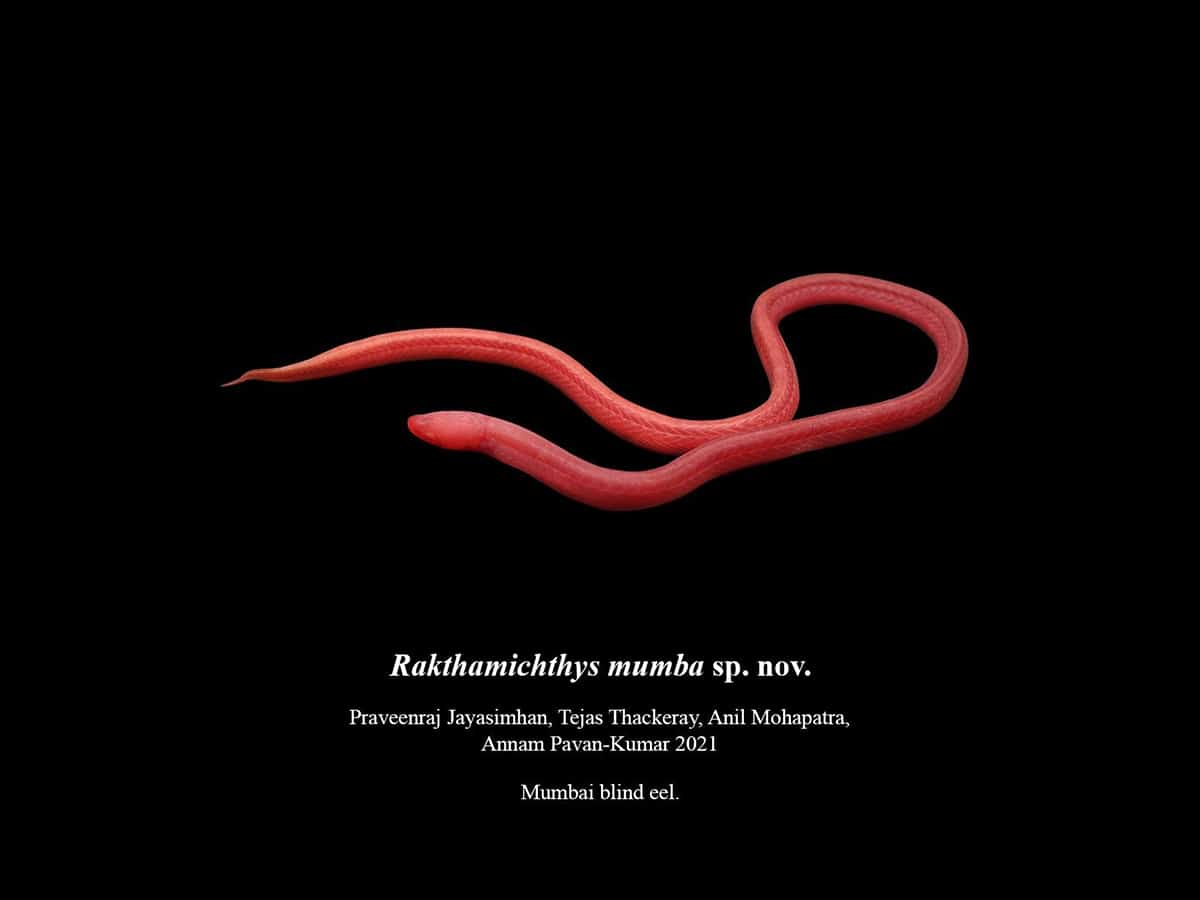Mumbai: A new species of a blind swamp eel belonging to the genus Rakthamichthys that is endemic to India was discovered from a suburban Mumbai well by naturalist Tejas Thackeray, officials said here on Thursday.
“I believe it’s my most remarkable discovery till date… A new species of a blind hypogean freshwater eel from Mumbai, named as ‘Rakthamichthys Mumba’ – after my home city Mumbai,” an excited Tejas Thackeray, the younger son of Chief Minister Uddhav Thackeray, said.
Unlike other species of this genus, the ‘Rakthamichthys Mumba’ has no eyes, fins or scales, has jaws equal in forward extent, different gill aperture, crescentric-shaped cephalic, according to Zoological Society of India scientist Anil Mohapatra, quoted by DownToEarth magazine.
Mohapatra is the co-author of ‘Rakthamichthys Mumba’ with Thackeray, Praveenraj Jayasimhan and Annam Pavan-Kumar, and after extensive analysis, it was established that the blind eel is a new discovery, and their research has been published in the Aqua International Journal of Ichthyology.
Tejas Thackeray of Wildlife Foundation discovered the eel in a 40-feet-deep well in the compound of a school for the blind in Jogeshwari west in 2019, and he collected five specimens of the species after completely pumping out the well water.
As per the research paper description, “the species has a slender, sub-cylindrically elongated body and is cord or thread-like with striations on the muscle, the middle portion of the bulbous head is the deepest and widest part of its body”.
The four scientists further described the new find, saying “all the teeth of the species are similar, small, stout, pointed, recurved and closely, the body is pinkish-red with numerous blood vessels, and the present known habitat of this species is only the Mumbai well.
“Rakthamichthys Mumba differs from its congener from Western Ghats of India by the possession of jaws-projecting forward equally, when viewed laterally, absence of eyes and having more vertebrae,” said the research paper.
“This is the first completely blind subterranean freshwater fish species to be described from Maharashtra & the Northernwestern Ghats. The species name ‘Mumba’ refers to the type locality, the city of Mumbai, and it is derived from the Marathi ‘Mumba Aai’ the deity worshipped by Mumbaikars,” said Tejas Thackeray.
He added that virtually nothing is known about the the level of endemism, distribution patterns, biographic barriers causing speciation factors, and a surreal species like this is to conserve nature, the water table beneath the soil and keep the aquifers clean to help ‘enigmatic beauties’ like these survive.
Mohapatra told the DownToEarth that the synbranchidae family members are very peculiar, relict lineages of percomorphs, consisting of eel-like fishes, distributed across all countries except Antarctica.
Presently, this family consists of 26 valid species and are unique among teleosts by lacking paired, median and caudal fins, as per the team of Thackeray, Mohapatra, Jayasimhan and Pavan-Kumar.
“Let’s not forget we share this planet, with amazing creatures big and small. Some so cryptic that their mere existence is a myth,” Thackeray said in a gentle message to preserve the earth.

